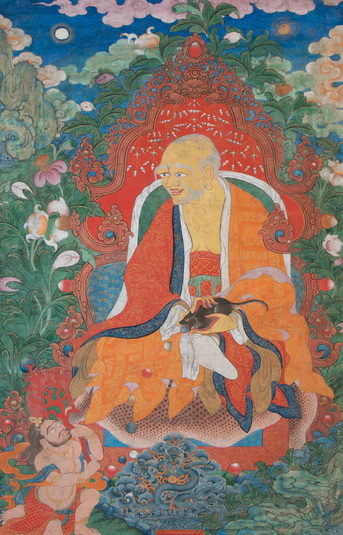
Contrary to popular belief, and despite the difficulties of giving up meat in countries like Tibet (due to lack of plant food available), there are many examples of Tibetan Buddhist masters who advocated strict vegetarianism. One recent article, The Hidden Vegetarians of Tibet by Geoffrey Barstow (author of Food of Sinful Demons: Meat, Vegetarianism, and the Limits of Buddhism in Tibet) identifies more than 110 individual teachers who made the decision to give up meat in Tibet, prior to the Chinese invasion in the 1950s.
Inspired by these examples, and the recent teachings of HH 17th Gyalwang Karmapa on vegetarianism in Tibetan Buddhism and other Buddhist traditions, this page is dedicated to relevant research, texts and Tibetan Buddhists who advocate vegetarianism and animal rights. There are brief profiles of well-known Tibetan Buddhist vegetarians, past and present, such as Jetsun Milarepa, Kunkhyen Dolpopa, Ngorchen Kunga Zangpo, 1st Sangye Nyenpa, 4th Karmapa, 8th Karmapa and contemporary examples such as Chadral Rinpoche, 17th Karmapa and Jetsunma Tenzin Palmo. Although there are many more individuals that are vegetarians, I have listed those who have written or spoken extensively about vegetarianism.
Posts/Research/Texts
Videos/Interviews
See overview article about this interview with Prof. Janet Gyatso, Hershey Professor of Buddhist Studies at Harvard University, in which we discuss Buddhism and eating animals, and her work on that topic here.
See overview article about this interview with leading translator-scholar on Vegetarianism in Tibet, Dr. Geoffrey Barstow here.
See overview article about this interview with TV producer and interviewer about the Jangsem Monday vegetarian movement in Bhutan, Karma Dendup here.
Articles and Downloadable texts
Buddhist Teachings on Eating Slaughtered Animals (Teahouse BDG, February 2024)
Buddhism and Eating Animals: Is It Permissible or Not?
Milarepa’s Song on Abandoning Eating Meat and the Suffering of Animals
Milarepa’s Songs to the Hunter and Animals: Khyira Kagyu Lineage
17th Karmapa’s Teachings on Vegetarianism (March 2021)
JE MILAREPA’S SONG ON THE SUFFERING OF ANIMALS FOR THE EVIL ‘CUSTOM’ OF MEAT-EATING
Tibetan Buddhist Vegetarians – past and present
Jetsun Milarepa (1040-1123)

Famed yogi and founder of Kagyu lineage, Jetsun Milarepa was also a vegetarian who cared about animals out of great compassion. As can be seen in the articles below, one of Mila’s students was a former hunter whom he he had convinced not to kill animals.
Milarepa’s ‘Song to the Hunter’ and the living ‘ear-whispered’ lineage of Khyira Kagyu in Nepal
NEW PUBLICATION: ‘Milarepa’s Songs to the Hunter and Animals’, the Khyira Kagyu lineage
JE MILAREPA’S SONG ON THE SUFFERING OF ANIMALS FOR THE EVIL ‘CUSTOM’ OF MEAT-EATING
Dolpopa Sherab Gyaltsen (1292-1361)
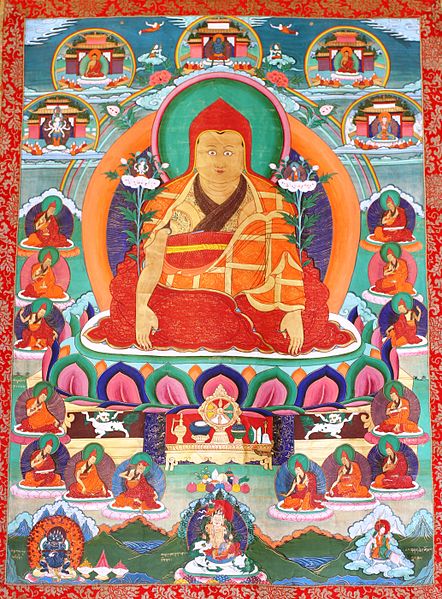
One of the main founders of the Jonang lineage and view of Empty-of-Other (gzhan stong), Dolpopa was a strict vegetarian from a young age.
Ngorchen Kunga Zangpo (1382-1456)
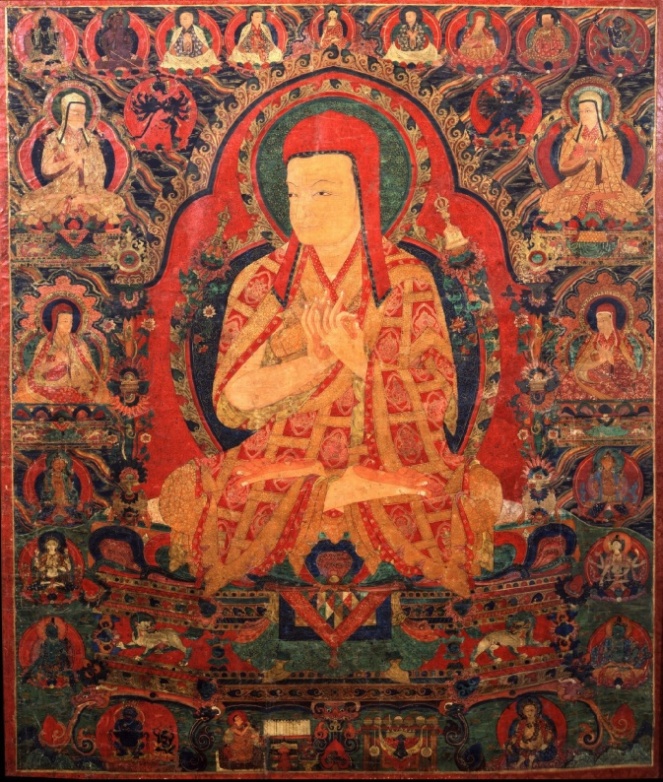
4th Karmapa, Rolpe Dorje (1340-1383)
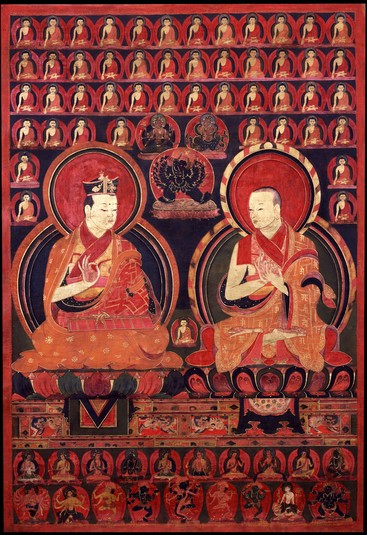
Founder of the Karma Kagyu Great Encampment, the 4th Karmapa, Rolpe Dorje instituted strict vegetarianism both inside and outside the camp.
1st Sangye Nyenpa, Tashi Paljor (1457-1525)

One of the main teachers of the 8th Karmapa, the 1st Sangye Nyenpa, Tashi Paljor, was a strict vegetarian from the age of 22 years.
8th Karmapa, Mikyo Dorje (1507-1554)
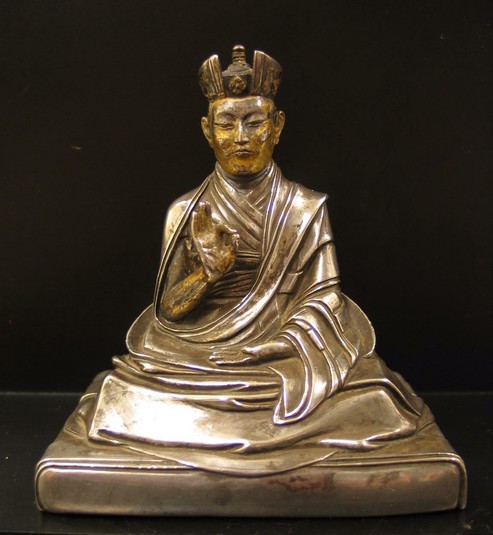
8th Karmapa (a student of the vegetarian 1st Sangye Nyenpa) was also a vegetarian who imposed strict rules on the Karma Kagyu Great Encampment and told people they were not his students, nor he their teacher if they ate meat.
In his Monastic Guidelines for Tsurphu Monastery, he wrote that “Monks gathered here should, in particular, not eat meat or eggs” (mi bskyod rdo rje 2004a, vol. 3, p. 709). Mikyo Dorje wrote in support of vegetarianism in several places, including an extensive work focused solely on the faults of meat. In addition to this standalone work, Mikyo Dorje included a critique of monastic meat eating in his commentary on Gunaprabha’s Vinayasutra (mi bskyod rdo rje 2004b, vol. 7, pp. 541-44).
Shabkar Tsodruk Rangdrol (1781-1851)
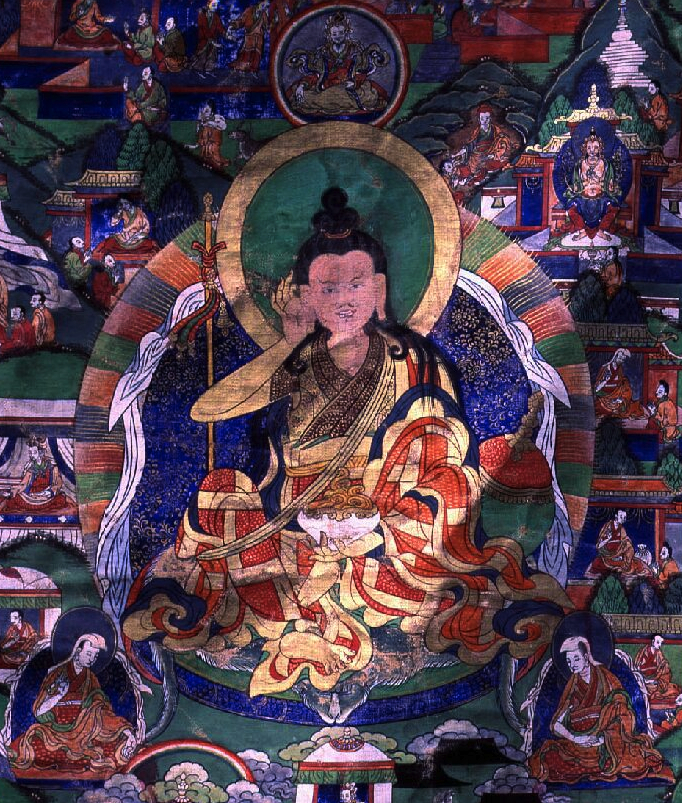
“Shabkar was famous for his affection and concern for animals. His attitude was an expression not only of personal sympathy and aesthetic appreciation; it was rooted in his understanding of Buddhist teaching as can be read in the book Food for Bodhisattvas containing two works of Shabkar and his autobiography translated by Matthieu Ricard.”
Chadral Rinpoche (1913-2015)

A wandering yogi, Chadral Rinpoche was one of the most outspoken and passionate advocates of animal rights and vegetarianism: He says:
If you take meat, it goes against the vows one takes in seeking refuge in the Buddha, Dharma and Sangha. Because when you take meat you have to take a being’s life. So I gave it up.
Source: Compassionate Action, chapter 2 [download]
Khenpo Tsultrim Lodro Gyatso (1961- present)

One of the most important proponents of contemporary Tibetan vegetarianism in Tibet is Khenpo Tsultrim Lodro, until recently the head of Larung Gar, among the largest monasteries in history. Khenpo Tsultrim Lodro is a personally committed vegetarian, and is well known for arguing extensively against meat eating, both in written works and recorded teachings.
Barstow explains in Monastic Meat: The Question of Meat Eating and Vegetarianism in Tibetan Buddhist Monastic Guidelines (bca’ yig): “Yet Larung Gar does not have a rule banning the consumption of meat. Meat may not be purchased in the monastery, and communal events are certainly vegetarian, but individual monks may eat what they like in their own rooms. When I asked Khenpo Tsultrim Lodro why he did not ban meat, he responded that some religious leaders and scholars were quite fond of eating meat and if he banned it they might not be willing to come to Larung Gar to teach.”
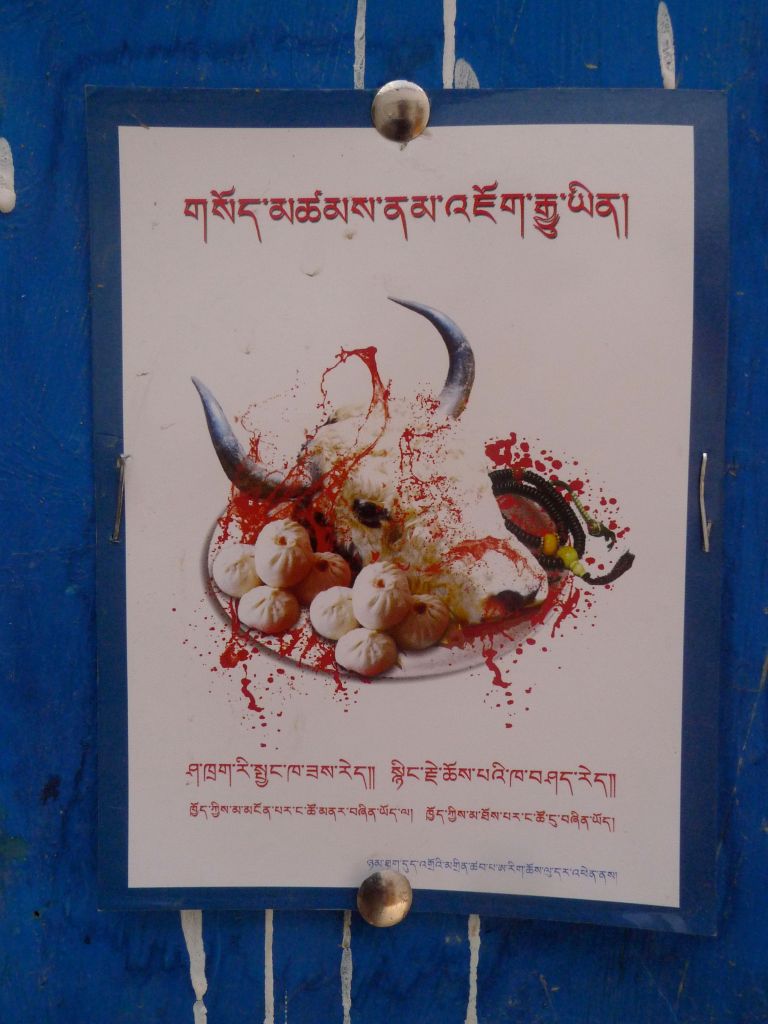
Khenpo Tsültrim Lodrö – The Lost Yak
Here is a video link to one of his teachings on vegetarianism:
17th Karmapa, Orgyen Trinley Dorje (1985- present)

Spiritual head of Karma Kagyu, the 17th Karmapa is one of the world’s leading spiritual masters advocating vegetarianism, animal rights and environmental protection. In a speech in Bodh Gaya, 2007, the Karmapa spoke strongly about people giving up eating meat, in particular monastics, and forbade all buying, cooking and consumption of meat within Karma Kagyu monasteries. He has given many teachings and talks where he speaks about the topic. He is also the founder of Khoryug, an environmental protection organisation.
HH Karmapa’s Speech on Vegetarianism Part 1 of 5 – Tibetan – YouTube (Video of Bodh Gaya speech, 2007 – Tibetan and Chinese subtitles )
Teaching on Not Eating Meat (rinpoche.com) (English translation of Bodh Gaya speech, 2007)
大寶法王噶瑪巴: 吃素開示 (一) The 17th Karmapa: Go Vegan 1 – YouTube (Video of Bodh Gaya speech, 2007 – Tibetan and Chinese subtitles. See below:)
Jetsunma Tenzin Palmo (1943-present)

British nun, formerly known as Diane Perry, who famously spent twelve years alone meditating in a cave, and set up a nunnery in India, is not only an advocate for gender equality and empowerment of female Buddhist practitioners, but also a strict vegetarian and advocate for animal rights. The dogs cared for at her nunnery are all fed vegetarian food too.
Dongyu Gatsal Ling Nunnery founded by Jetsunma Tenzin Palmo.
Online Resources
Buddhism and vegetarianism
Tibetan Vegetarians Past and Present – Tricycle: The Buddhist Review
Buddhism and Vegetarianism | Articles in PDF (shabkar.org)
Buddhism and Vegetarianism (shabkar.org)
(PDF) Ngorchen Künga Sangpo on the Faults of Alcohol and Meat | Joerg Heimbel – Academia.edu
Heimbel, Jorg. 2017b. Vajradhara in Human Form: The Life and Times of Ngor Chen Kun Dga’ Bzang Po. Lumbini: Lumbini International Research Institute.
Lambert Schmithausen’s three-part study “Meat Consumption and Vegetarianism in Indian Buddhism until about the middle of the first millennium A.D.” was published by projektverlag in June 2020.
Personal blog and website of Geoffrey Barstow Publications – The Lost Yak, author of the following works:
—The Faults of Meat – The Wisdom Experience
—Food of Sinful Demons | Columbia University Press
Gayley, Holly. 2017. The Compassionate Treatment of Animals. Journal of Religious Ethics 45: 29-57.
Buddhist scriptures
On Meat-eating [Chapter 8] (wisdomlib.org)
The Chapter on Meat-Eating from the Lankāvatāra Sutra — Śraddhāpa Translation (sraddhapa.com)
Vegetarianism and politics
Yak politics: Tibetans’ vegetarian dilemma amid China meat boom | China | The Guardian
Saving yaks from slaughter criminalised by China | Free Tibet
The Longstanding Debate over Vegetarianism in Tibet – Lion’s Roar

